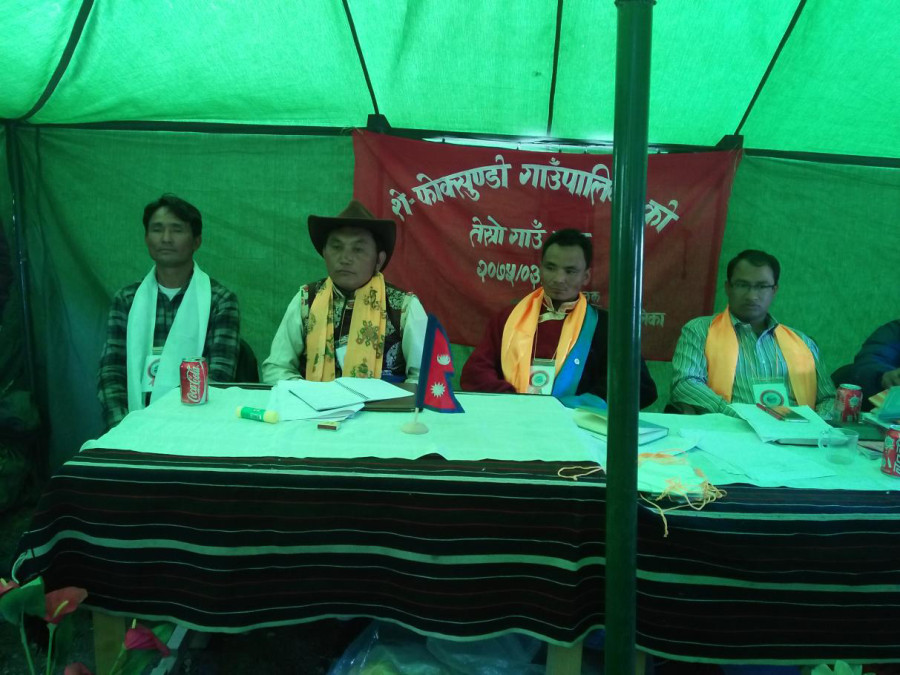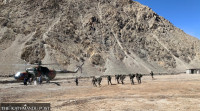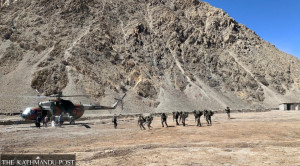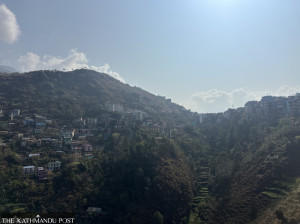Karnali Province
Voices of women unheard in Dolpa local units
Because of male-dominated local units, plans and policies of the local units are not in favour of women in Dolpa.
Chandani Kathayat
Tsering Gurung, the ward chairperson of Dolpobuddha Rural Municipality Ward No. 6 in Dolpa, is the only female representative in an executive position in the local unit. Two years since assuming office, she has presented various women-related issues, from controlling violence against women to curbing child marriages to health care for women and children, in the executive meeting. But she faces resistance to her ideas and suggestions from the chief and deputy chief, both of whom are men.
Although the constitution and election laws state that either the chief or the deputy chief’s post in the local units have to be filled by a woman, men have been enjoying the higher-level posts in Dolpobuddha and two other local units of the district.
Stating that all higher-level posts were filled by men because of political alliance forged ahead of the last local level election, Tsering said, “There are women elected representatives, but none in the higher posts. Since there are no women in a decision-making position, there is nobody who understands or takes up women’s issues.”
Women representatives in the local units have been constantly sidelined by male representatives and kept from participating in development activities. “I have been pushing for a birthing centre in the ward, but the local unit chief and deputy chief have not shown any interest in the issue,” said Tsering. “I sometimes think that we were elected just to fill quotas.”
The plans and policies of the local units are not women friendly, said Chhomu Gurung, a female member of Ward No 1 of the municipality. Tired of having to deal with condescending men who overspeak their turns at meetings, Gurung has stopped voicing her opinions at these gatherings.
“Although I won the election, I send my husband to these meetings. My only role at these meetings is to sign documents since what I say hardly matters to the other members,” Gurung said.
Stressing on the repercussions that unequal representation has on achieving gender equality, especially in male-dominated communities, Karma Sangbu Thapa Bhote, a local health worker, said, “There are many disadvantages of having a male local unit chief and deputy chief. The society is patriarchal to a fault and women who are trying to change that are not given the opportunity to speak up.”
Thapa Bhote said that because of the absence of a birthing centre, women are compelled to deliver their babies on the cold hard floor of the health centre.
“We, along with our female representatives, have been requesting the rural municipality to build a birthing centre to facilitate safe delivery for pregnant women, but nobody has paid any attention to our request,” she said.
Urmila Bishwokarma, a representative of the Women Empowerment Centre in Dolpa, said that men do not even acknowledge the existence of women representatives in the local units.
Meanwhile, Temba Gurung, the chairman of Dolpobuddha Rural Municipality, is of the opinion that women resort to protests if their demands are not met, creating a nuisance for the municipality.
“We have allocated sufficient budget for the development of women and children in our rural municipality,” he said. Out of the total budget of Rs 174.2 million for the current fiscal year, Rs 1 million has been set aside for the development of women and children. “The local unit has allocated budget to train women on technical skills such as tailoring,” said Temba. But Thapa Bhote believes that the rural municipality should be spending the budget on providing health care to women and children rather than on technical training.
Women representatives in other municipalities of Dolpa district also express their dissatisfaction in having a male chief and deputy chief in their wards. Maya Shahi, a ward member of Thuli Bheri Municipality Ward No. 3, said she is tired of being invisible to the male members of the municipality.
“The chief and deputy chief of the rural municipality do not think it necessary to inform us about development plans and activities. We are asked to attend the meetings, but not given any responsibilities,” said Shahi.
Shey Phoksundo Rural Municipality, which also has men at the helm of the local unit, allocated Rs 800,000 under the women and children category out of a budget of Rs 230.2 million in the current fiscal year.
When questioned about the intent of allocating a mere 0.34 percent for the development of women and children, Narayan Prasad Adhikari, the chief administrative officer of the rural municipality, said, “Compared to Rs 500,000 for women and children in the fiscal year 2018/19, the budget under that category has, in fact, been hiked up.”
However, since the rural municipality also runs the “One House One Employment” scheme, Adhikari said that women can also be included as the beneficiaries of this scheme, and that the rural municipality “has done what it can for the development of women and children.”
Dolma Gurung, a local of Dho Village in Shey Phoksundo Rural Municipality, said that her village has many needs, especially in terms of uplifting the quality of life of women and children. Pregnant and postpartum women in her village risk losing their lives for lack of well-equipped health facilities.
“I have seen many women lose their lives for want of treatment. Year after year, we ask the local unit to make plans and policies that ensure safe delivery, nutrition and newborn care, but they don’t pay attention to us. This year, they have hiked the budget for women and children, but it is not enough,” Dolma said.
Meanwhile, Thuli Bheri Municipality has not allocated any budget this fiscal for the development of women and children. Lok Bahadur Rana, the chief administrative officer, claimed that the municipality has allocated Rs 2 million for a “target group”.
“Women also fall under that target group,” said Rana, adding that they plan to use the budget in vocational training. But like Thapa Bhote in Dolpobuddha Rural Municipality, Shahi in Thuli Bheri believes that the need of the hour for women in her municipality is health care.
“Introducing vocational and technical training for women before having proper health plans for them shows the absence of women in policy making roles at the local level,” said Shahi.




 9.7°C Kathmandu
9.7°C Kathmandu













